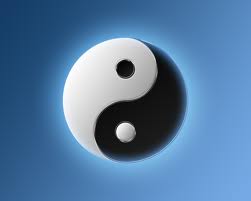|
CHINESE LAUNDRY
The Chinese family screened by a wall of steam
Soaks its pride in white bleach
Scrubs the
ring around the collar of racial slurs
Rinses with its tears of humiliation
Presses with the starch of its courage
©
Jocelyne Verret (e-poem)
from PEOPLE FROM HERE AND AFAR Collection Littart,
Edmonton, Alberta, CANADA
The Chinese
laundry was perhaps the major occupation of early Chinese immigrants. Because of the circumstances under which Chinese immigrants
of that period came to America, many of them had few choices then but to run laundries. Operating a laundry required relatively
little capital, little education, little English ability, and it was something that Whites did not at least initially, try
to prevent them from doing. Chinese hand laundries sprang up all over the U, S., in small as well as in large cities during
the first half of the twentieth century. Even though they were owned individually, there was an unmistakable look to most
Chinese hand laundries, as if they were franchises.
Most of them had red store window signs stating the name of the
laundry such as Loo Ling Laundry in large black block letters with gray shadowing. All of them used tickets printed with some
Chinese characters on them, and probably purchased from the same printer in Chicago. Then by the 1950s they died out like
the dinosaurs did, partly because of the widespread availability of automatic washing machines made for self-service laundromats
and for homes. Moreover, easier to clean clothing made from materials such as permanent press, were becoming available. Another
contributing factor to the demise of the Chinese laundry was simply that the children of laundrymen were able to enter professional
and business roles with their high levels of education that ironically had been made possible by the sacrifice and support
of their parents who labored in these laundries.
Sam Lee Laundry
Our laundry was very similar to but also
very different from those I saw in other Chinese laundries. The storefront was rather wide, about 25 feet, in comparison to
some of the hole-in-the-wall Chinese laundries I have seen over the years. It was also much deeper, probably over 100 feet
from front door to back door. On the left front side of the store, wrapped packages of finished laundry were stacked on several
shelves awaiting pickup. To the side was a dressing room where male customers could wait for their business or dress trousers
to be pressed by steam while they waited.
We never knew how old the Sam Lee Laundry was when we lived in Macon, but
I was later to learn that city directory records showed that it existed as far back as 1892. Unlike all other Chinese laundries
I have seen, we did not have a front counter with tall vertical iron bars from counter top rising almost to the ceiling similar
to the bars at bank teller windows in those days designed to protect the teller from the customer. These barriers were intended
to protect the often sole occupant, the defenseless Chinese laundryman, from physical assaults and robbery.
|
|
| A well deserved break for father. 1953 |
|
